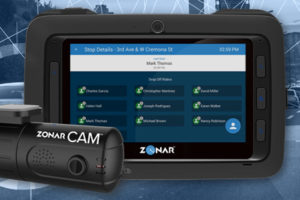For many schools having a system that lets it know the time, date and location of each entry and exit from the bus of students for real-time child search and child check might be a nice to have but one that’s hard to justify economically. School Districts have to balance being safety conscience with being good community stewards and fiscally responsible in managing costs.
What many schools aren’t aware of is the availability of the Medicaid School Based Services (SBS) program which includes reimbursement for transporting eligible special needs students to offset the cost of transportation services. Currently, each Medicaid eligible student with an Individual Education Plan (IEP) is eligible for $500-$1000 reimbursement back to the school. With the right systems in place, some schools are receiving hundreds of thousands of dollars per year in reimbursements. With these funds sitting on the table, gaining easy access to them should be a no-brainer.
But schools are hesitant to try to access these funds because eligibility and data requirements for reimbursement can seem daunting and must be auditable. Smart fleet technology can ease these issues. The same “nice to have” time, date and location of each student’s entry and exit from the bus for realtime child search and child check technology can be used to track and store data reliably and accurately. That electronic data can be easily submitted to reclaim funds in a matter of minutes instead of weeks which traditional reporting requires.
School districts without these types of smart fleet technologies in place have traditionally completed Medicaid accounting on paper by monitoring and
tallying eligible student ridership via checkboxes on the forms. This process is time-consuming and makes it hard to accurately capture the data needed let alone verify it isn’t manipulated or “pencil whipped.” This paper-based method can also lead to error-prone claims and payback issues. Often school districts determine the process which can take over a week is too much work compared with the risk of audit for the returns they are receiving and discontinue seeking reimbursement.
A best practice use of this type of technology is using tracking software and radio-frequency identification (RFID) cards that gather accurate, real-time data on your students with special needs and the bus attendants that provide care for them. With the data captured through these scans, schools can seamlessly report those students’ ridership within the SBS guidelines and access significant Medicaid reimbursement dollars that districts without such technology have been letting slip through the cracks and letting go unclaimed.
Let technology do the heavy lifting and eliminate the complexities and audit risk associated with manual reporting for Medicaid reimbursement. The value of a RFID card-based student tracking system goes beyond special needs students. Schools can implement it to help keep all their school bus riding students safer with real-time child checks delivering peace of mind regarding where students are.
This article was originally posted in the Yellow Bus Newsletter







